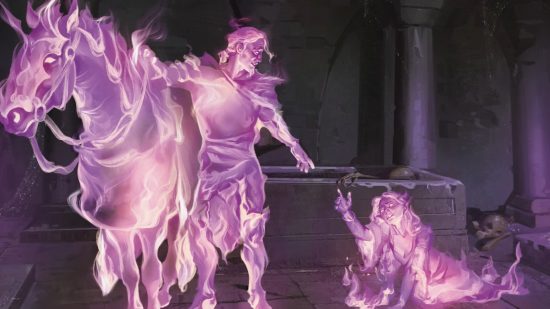Dungeons and Dragons Open Game Licence (OGL) is changing in early 2023, with the continued development of One D&D, and Wizards of the Coast plans to seek royalties from the top creators making third-party DnD content. However, in a D&D Beyond blog post published on December 21, Wizards says it only wants a cut from those making $75k or more, and that this currently applies to fewer than 20 creators. For the majority of creators, the company assures: “relatively little is going to change”.
This statement comes in response to the ton of worry, agitation, and rumour that’s been going around in the D&D community of late. Many fans have shared fears that the OGL – which allows RPG creators to produce and sell third-party tabletop content – will be changed or removed during the shift to a new rules system. Wizards of the Coast says it’s broken from its original schedule, to “clear the air and share the facts with you”.
The company’s explanation says that “The OGL needs an update to ensure that it keeps doing what it was intended to do”. The new version will make it clear that the OGL only applies to written TTRPG material, not videos or DnD videogames, and will apparently prevent people from minting their own D&D NFTs. “D&D merchandise, like minis and novels, were never intended to be part of the OGL, and OGL 1.1 won’t change that,” the blogpost explains.

However, the new iteration of the OGL will also offer “different terms” to creators making free content and those that are selling their work. For share-alike creators, “very little is going to change from what you’re already used to”. However, those making money from RPG content under the OGL will need to let Wizards know what they’re releasing, accept the new licence terms, and include a ‘Creator Product’ badge on their work.
It’s apparently only the upper-echelons of D&D content creators who’ll need to do more than that. Wizards says if you’re earning more than $50,000 in a year you’ll need to report OGL-related annual revenue. It also plans to add a royalty, starting in 2024, for those earning more than $75,000, but underlines that “all revenue below $750,000 in future years will be royalty-free”.
“You will still be able to create new D&D content, publish it anywhere, and game with your friends and followers in all the ways that make this game and community so great,” the post concludes. “The thousands of creators publishing across Kickstarter, DMsGuild, and more are a critical part of the D&D experience, and we will continue to support and encourage them to do that through One D&D and beyond.”
